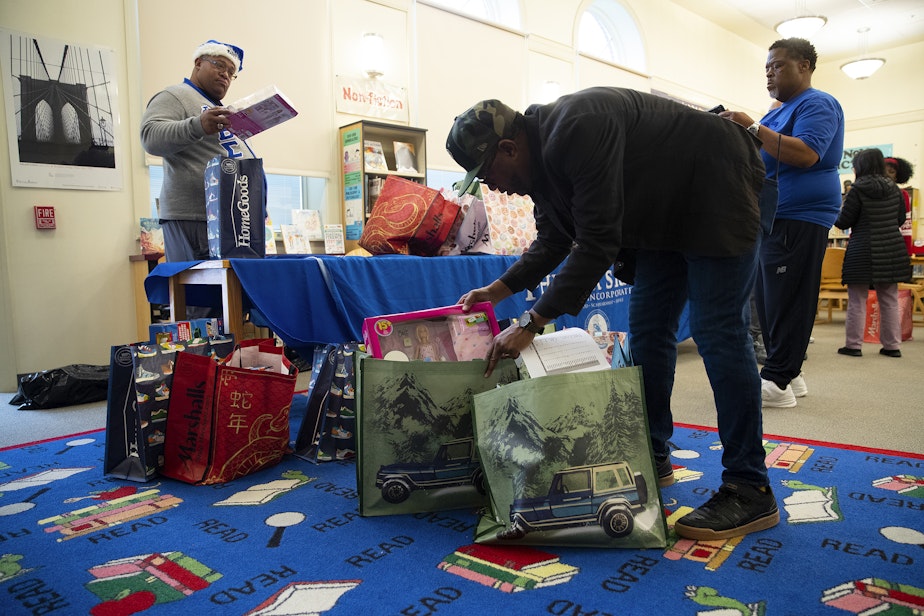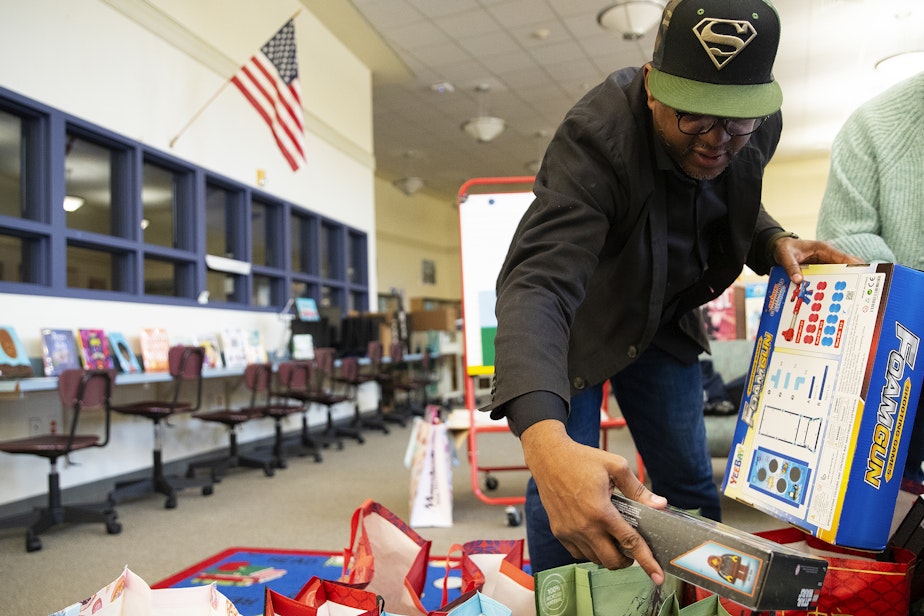A troubling trend. Seattle reports another nearly 20% increase in homeless students

Seattle Public Schools has seen a sizeable spike in the number of students experiencing homelessness for the second year in a row.
As of October, when the district collects its annual data on student homelessness as required by the federal McKinney-Vento Act, 2,235 students were currently — or had been — homeless since the school year began.
That's a nearly 20% increase from last year, when the district recorded a more than 30% jump.
RELATED: Student homelessness in Seattle schools jumps by a third in 2023
It's part of a national and statewide trend. A new federal Department of Housing and Urban Development report released last week reveals homelessness soared to the highest level on record in 2024.
In Washington state, more than 41,000 students experienced homelessness sometime during the 2023-24 school year, the latest data available from the state Office of Superintendent of Public Instruction. That's a nearly 15% increase from the year before.
Sponsored
Jenny Allen is a McKinney-Vento family support worker who oversees homeless services at 24 schools across Seattle. In such an expensive city, Allen said families are continuing to be hit hard by inflation and often struggle to find and secure affordable housing.
The district has also seen an uptick in immigrants and refugees, Allen said, especially from South American countries.

At Dunlap Elementary, Rogers Greene has seen this firsthand. He's worked with unhoused students at the southeast Seattle school for eight years. These days, Greene is serving a growing number of families fleeing war-torn countries like Ukraine or Afghanistan.
"I can't imagine. You're just dropped somewhere and then figure it out — figure out the language, figure out how you're going to live, where you're going to live, how you're going to eat," he said. "It's survival. So it's important for us to have those connections, relationships, and work through the language barrier."
Sponsored
Specialized school staff like Greene help families connect to organizations that provide housing, health care, and other social services.
"They may not know of those services, those resources that they can access, so part of my job is to educate," Greene said. "But what I want to get to with families is a point of empowerment — like they've accessed a resource, they've used it successfully, they know of some organization where they've been helped, and they can share that with someone else or another family."
That's especially important for immigrant and refugee families, Greene said, because many do not speak English and the language barrier makes it more difficult for them to get connected to assistance, or they fear seeking help or sharing information could get them deported.
RELATED: Washington immigrants, rights activists prep for Trump's promised ICE raids
Apart from serving as an educational resource to families, Greene said he also tries to help make school a safe, fun place for students.
Sponsored
Every day, he supervises three lunches at Dunlap and connects with kids who may or may not need his services. Afterward, he can take up to four students back to his classroom during recess, where he plays games with them and provides them with basic things they might need, like backpacks, shoes, winter coats, and other clothes.
When basic needs like those are not met, Greene said it can create a huge challenge for students to engage at school.
A report from Building Changes last year found academic outcomes among unhoused students remained far below their peers who were housed.
For example, the report revealed less than a quarter of Washington students experiencing homelessness were proficient in English-language arts in 2021-22 state tests. More than half of housed students, meanwhile, were considered proficient.
"It's harder — in some cases perhaps unbearable — not to have the necessities, or to come to school having just slept in a car last night," he said. "That looks different from someone who came from a warm environment the evening before and had everything that they needed and showed up as a student, ready to be a student."
Sponsored
RELATED: U.S. homelessness jumps to another record high, amid affordable housing shortage
Above all, Greene tries to be a trusted adult figure who can help students with whatever they need. When students have that, Greene is amazed by the outcome.
"Our students are really resilient," he said. "Some who arrived here three years ago and who couldn't speak any English are like fluent now and communicating and it's just awesome to see."




